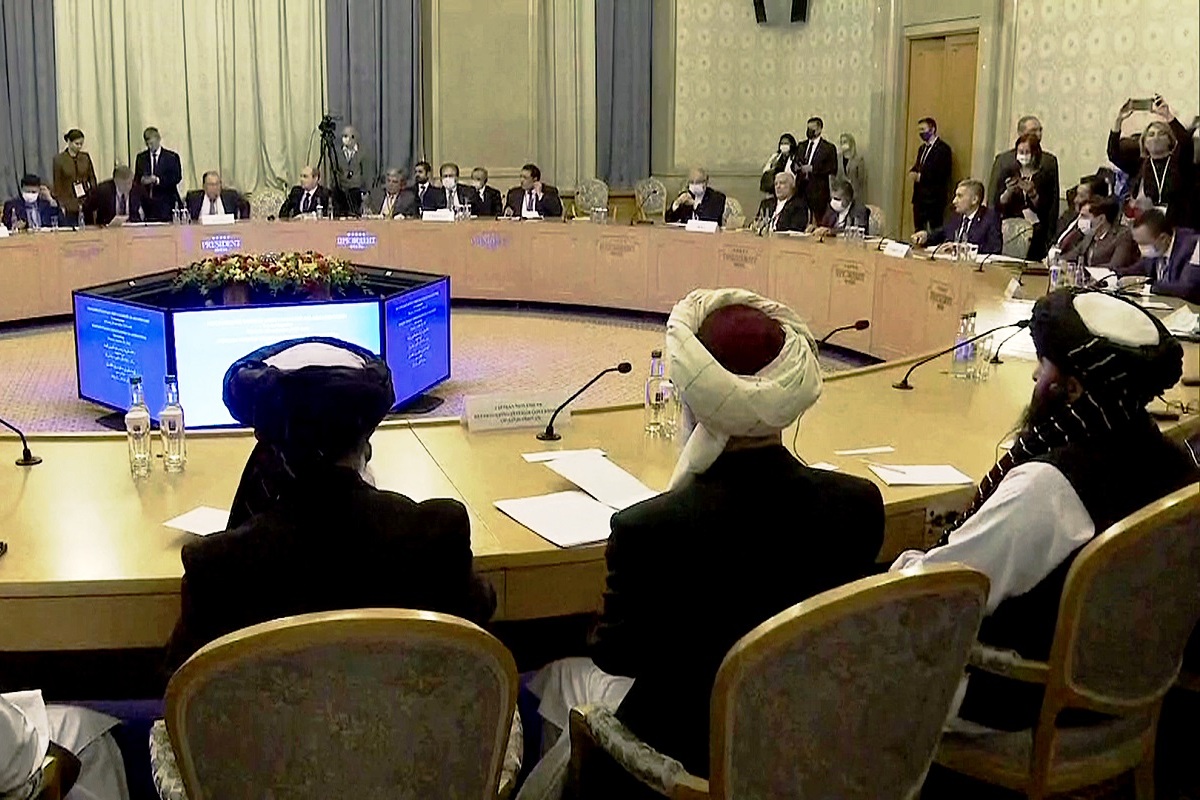Afghanistan receives over 8,000 foreign tourists in two years
More than 8,000 foreign tourists visited Afghanistan over the past two years, local media TOLOnews reported Saturday, citing a government official.
“Nobody is interested in the complete paralysis of an entire state, which borders, among other things, the CIS (Commonwealth of Independent States),” said the Kremlin spokesman, Dmitry Peskov.

(ANI Photo)
There are at least three striking features of Wednesday’s talks between Russia and the Taliban, the new rulers of Afghanistan. Indeed, it was the first major international conference with the Taliban, since August 15 ~ the day of the takeover.
No less critical was the abstention of the United States of America even as ten other nations, including India, were represented at the high table in Moscow.
As it turned out, the new regime of the embattled country has obtained the support of the regional powers for the concept of a United Nations donor conference to help the country avert economic collapse, not to forget a humanitarian catastrophe.
Advertisement
Russia, China, Pakistan, India, Iran and five former Soviet Central Asian states joined the Taliban in appealing to the UN to convene such a conference as soon as possible to help reconstruct the country whose administration is in tatters.
They said it should take place “with the understanding, of course, that the main burden…should be borne by the forces whose military contingents have been present in this country over the past 20 years”.
Reports suggest that there was a pointed reference to the United States and its allies, who invaded Afghanistan after the 11 September 2001 attacks and whose abrupt withdrawal paved the way for the Taliban to seize control of the country in August.
Washington chose not to attend the talks, citing technical reasons, but has said it may join future rounds. The State Department has been remarkably diplomatic. Russia has led the calls for international aid, conscious that any spillover of conflict from Afghanistan could threaten regional stability.
“Nobody is interested in the complete paralysis of an entire state, which borders, among other things, the CIS (Commonwealth of Independent States),” said the Kremlin spokesman, Dmitry Peskov. The Taliban’s resurgence has stoked international fears of a return to their hardline form of Islamist rule in the 1990s, when they hosted Osama bin Laden’s Al Qaida movement and carried out human rights violations, notably stoning in public and the marginalisation of women at work and in schools.
Significant, therefore, is Malala Yousufzai’s appeal to the hardliners to reopen schools for girls. The winner of the Nobel Peace prize was grievously injured when she was shot at by the Taliban while returning from school in the Swat valley. Since returning to power, the Taliban say they have moved as quickly as possible on opening up their government and guaranteeing rights to women, and that they do not represent a threat to any other country.
But it is testament to the Taliban’s obduracy ~ and its unwillingness to compromise with dogma ~ that despite the privations faced by Afghans, the group has so far not gone beyond paying lip service to the idea of inclusive governance. Thus, the comity of nations is unlikely to be readily convinced.
Advertisement